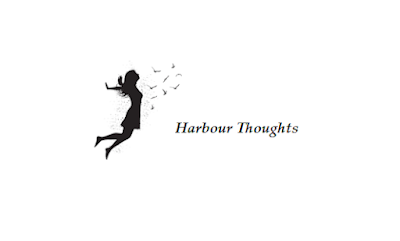My Father
By Hadi S.
my father was not among those who returned
my father fell on the field of battle
my heart's torn asunder with sorrow and grief
and the red-and-white flag flutters high in the sky
oh, people of today
do you hear?
my father is dead, he was slaughtered by bullets
oh, why does such suffering still stalk the earth?
Source: Contemporary Progressive Indonesian Poetry, 1962
Poem Analysis:
Hadi S.'s poem My Father is a poignant reflection on loss, grief, and the impact of war on personal lives. Through the personal narrative of a son mourning his father, the poem delves into the broader themes of sacrifice, national identity, and the enduring pain of violence. The concise yet powerful imagery evokes a sense of urgency and emotional depth, making the poem a resonant commentary on the consequences of conflict.
The Personal Impact of War
The poem opens with a stark declaration: “my father was not among those who returned.” This line sets the tone for the entire piece, immediately establishing the speaker’s profound sense of loss. By stating that his father fell on the battlefield, the speaker personalizes the experience of war, transforming it from an abstract concept into a deeply felt tragedy. The word “fell” carries connotations of heroism but also implies a sense of inevitability and sacrifice. This duality emphasizes the complexity of the father’s role as both a soldier and a victim of war.
The subsequent line, “my heart's torn asunder with sorrow and grief,” captures the intensity of the speaker’s emotional turmoil. The metaphor of a heart being torn reflects not only personal anguish but also a broader societal pain. This visceral expression of grief highlights how war ripples through families and communities, leaving lasting scars on those who remain.
National Identity and the Flag
The mention of the “red-and-white flag” serves as a powerful symbol of national identity and sacrifice. The flag, often associated with patriotism, stands in stark contrast to the personal grief experienced by the speaker. While the flag “flutters high in the sky,” representing national pride and the glorification of sacrifice, the speaker grapples with the reality of his father’s death. This juxtaposition raises questions about the true cost of war and the sacrifices made in the name of national identity.
Moreover, the flag's colors can symbolize the bloodshed and struggles that accompany the quest for independence or national pride. The speaker’s sorrow thus becomes emblematic of a larger narrative, suggesting that individual losses are often overshadowed by the glorification of national conflicts.
A Cry for Recognition
The refrain “oh, people of today / do you hear?” serves as a direct appeal to the audience, inviting them to witness the speaker’s suffering and reflect on the implications of war. This rhetorical question underscores the alienation often felt by those who bear the burden of loss. The urgency of the plea suggests a desire for acknowledgment, as if the speaker is challenging society to confront the harsh realities of war rather than romanticizing it.
The subsequent line, “my father is dead, he was slaughtered by bullets,” is a stark reminder of the brutal nature of conflict. The choice of the word “slaughtered” evokes a sense of violence and injustice, emphasizing that the loss of life in war is not merely a statistic but a tragic event that shatters families. This powerful language reflects the raw emotions associated with mourning, underscoring the human cost of political and military actions.
The Question of Suffering
The closing line, “oh, why does such suffering still stalk the earth?” encapsulates the poem’s existential inquiry into the nature of human conflict. This question reflects the speaker’s despair and frustration, not only regarding his personal loss but also in relation to the broader human condition. It suggests a longing for understanding and a desire to break the cycle of violence that perpetuates suffering across generations.
By framing the question in a universal context, Hadi S. elevates the personal tragedy of the speaker into a collective experience. This existential crisis invites readers to reflect on the recurring nature of war and the ongoing struggles for peace and justice in a world where suffering seems inescapable.
Structure and Language
The poem’s structure is characterized by its simplicity and directness, which enhances its emotional impact. The use of short, declarative sentences conveys a sense of urgency and immediacy, mirroring the speaker’s raw emotions. This straightforward approach allows the reader to engage deeply with the themes of loss and grief without the distraction of complex language.
Hadi S.’s use of imagery is particularly striking, as it evokes a powerful sense of place and emotion. The red-and-white flag serves as a visual anchor, while the imagery of bullets and the battlefield grounds the poem in the harsh realities of war. This combination of emotional depth and vivid imagery makes the poem resonate on both personal and societal levels.
A Resonant Reflection on Loss and War
My Father by Hadi S. is a poignant exploration of the personal and collective impact of war. Through the lens of individual grief, the poem addresses broader themes of sacrifice, national identity, and the ongoing nature of suffering. The direct address to the audience invites reflection on the harsh realities of conflict, while the imagery of the flag and the stark language evoke a profound sense of loss.
Ultimately, the poem serves as a reminder of the human cost of war and the importance of recognizing and honoring the sacrifices made by individuals and families. By confronting the reader with the stark realities of violence and the emotional weight of loss, Hadi S. compels us to engage with the ongoing struggle for peace and justice in a world that often seems indifferent to the suffering of its people.
